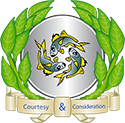History
Contact Details
Our Subject Leader for History is Miss Jones
ejones@edenacademytrust.co.uk
Subject Policy
For our Subject Policies please go to the this link
Impact and Implementation
Intent
At Fishburn Primary School, we intend to deliver high quality history lessons that inspire pupils to learn more about the past and think like a Historian. Our History curriculum is designed to ensure pupils can acquire, develop and deepen a broad range of historical knowledge and skills as they move through the school. Sequences of learning have been carefully chosen to enable pupils to investigate and interpret the past, understand chronology, build an overview of Britain’s past and the wider world, as well as opportunities to communicate their historical learning. Lessons will build pupil’s knowledge and understanding of significant people and events from a range of historical periods through allowing them to explore and evaluate evidence from a variety of sources and artefacts. Alongside this, we will equip pupils with the vital skills required to be a successful historian and allow them to enquire, research and analyse in a range of ways. Progression is ensured through mapping the key knowledge and skills across the school, ensuring learning builds over time. Opportunities for recapping and revisiting are fundamental in ensuring knowledge is retained and this is a key aspect of our planning process. In addition, the acquisition and understanding of key historical language is vital and we aim to promote speaking and listening opportunities wherever possible. We strive for all pupils to retain the knowledge and skills they have learnt throughout their time at Fishburn Primary School ensuring they are well prepared for the next steps in their future education.
Implementation
The national curriculum for history aims to ensure that all pupils:
- understand where they are from and the history of their local area and Great Britain.
- have a chronological understanding of main events, movements and individuals from the past and understand how these shaped the future.
- use and define historical terminology and language such as ‘civilisation’ and ‘empire’.
- develop an understanding of historical themes such as change through time.
- develop historical enquiry skills through the study of artefacts and other sources. Children will have experiences of seeing the past come alive.
- will ask questions and form opinions based on facts which are supported by evidence.
NC-KS1
- use new language referring to the past.
- compare time periods and explain why they differ- within and outside of living memory.
- begin to question and understand how we learn about the past.
- use artefacts to learn about the past.
- know about the past of our local area on a regional basis.
NC- KS2
- have a sound understanding of events (chronologically) that have shaped the past.
- understand the past of our local area and its significance on a national and international level.
- use different sources and artefacts to learn about the past and to begin to question why opinions on the past may be different because of the study of artefacts.
- make comparisons of the time periods they study and to begin to question and explain why time periods differ.
Each sequence of learning has been carefully chosen to cover a broad range of knowledge and skills, as set out in the National Curriculum and beyond. Our progression map organises the key knowledge and skills into year groups, setting out clear expectations and ensuring learning is deepened over time. The subject overview clearly shows how the units of learning are structured across the year, also taking into consideration progression and depth across the school.
Over time, our children learn about many time periods, civilisations and significant individuals and understand how these shaped the past. The local area plays a key part in the History curriculum and is fully utilised to achieve the desired outcomes. We have links in the local area which we use to enhance learning, making it come to life. In addition, the children’s learning is enriched through the provision of quality resources and artefacts as well as providing practical workshops and trips across the year.
Impact
Regular monitoring of books, learning walks and pupil voice are all used to assess the impact of History in our School. Outcomes in books demonstrate a broad and balanced History curriculum and a variety of recording styles and activities taking place.
We use formative assessment to measure the impact of our history curriculum which is recorded and monitored on a tracking system. Our History coordinator monitors the teaching and evidence of the subject through book and planning scrutiny alongside observations of lessons and conversations with the staff team.
We use our History passports to revisit and recap prior learning and to assess retained facts. We also use this to help place our new teaching topics in a historical, chronological context.
Cultural Capital and History at Fishburn:
At Fishburn we recognise that history is the building blocks to the way of life we enjoy now. Our children learn about a range of aspects in history in order to deepen their understanding and knowledge about why things are the way they are nowadays. Our teaching of history begins right at the centre of our school with the children and then moves out into the local area where there is a rich mining history. Our children will have access to historians and local people in order to make sense of periods of time that they are not familiar with. Our children will learn about key historical figures such as Florence Nightingale, Rosa Parks, Neil Armstrong, Mary Seacole and Martin Luther King.

